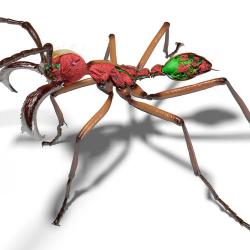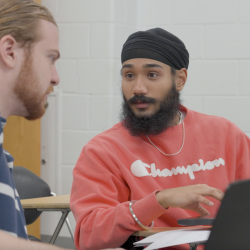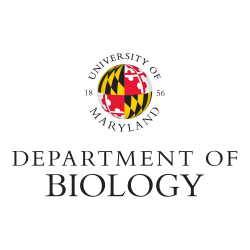University of Maryland Scientists to Present at AAAS Annual Meeting
Researchers from the University of Maryland College of Computer, Mathematical, and Natural Sciences will join thousands of their colleagues at the annual meeting of the American Association for the Advancement of Science (AAAS) in Washington, D.C., February 11-15, 2016. The UMD presentations will touch on ecology, atmospheric science, astrophysics, science communication and international collaboration, including these topics:
-
- Communicating science outside the halls of academia
- Efforts to combat deadly fungal disease epidemics in amphibians
- The moral, ethical and religious underpinnings of conservation efforts
- The latest international efforts in the search for dark matter
- Building effective international research partnerships
- Connections between air pollution and climate change in Asia
Details on these scientific sessions follow below. Speakers hail from the UMD Departments of Biology, Physics, Computer Science, and Atmospheric and Oceanic Science (AOSC), as well as the Earth System Science Interdisciplinary Center (ESSIC), the Institute for Physical Science and Technology (IPST), and the University of Maryland Institute for Advanced Computer Studies (UMIACS).
All sessions take place at the Marriott Wardman Park Hotel, 2660 Woodley Road NW, Washington, D.C. 20008.
Scientists Engaging in Policy (Seminar)
Thursday, February 11, 2016, 9:00–10:30 a.m., Marshall Ballroom North
Jim Gates (Physics): Speaking Outside Academia: A Perspective on Science Communication
Advancing Knowledge of Global Amphibian Decline with International Collaboration
***Preceded by Official AAAS Press Briefing
Press Briefing:
Thursday, February 11, 2016, 2:15–3:15 p.m., Virginia Room
Scientific Session:
Friday, February 12, 2016, 8–9:30 a.m., Harding Room
Karen Lips (Biology): Session Organizer and Discussant
Ana Longo (Biology): Global Collaborative Responses in Responding to Amphibian Chytridiomycosis
Biodiversity, Scientists, and Religious Communities: Conservation Through Collaboration
Saturday, February 13, 2016, 10–11:30 a.m., Coolidge Room
Karen Lips (Biology): The Loss of Salamanders in the U.S.
Astroparticle Physics: Unraveling Mysteries of the Universe
Saturday, February 13, 2016, 3–4:30 p.m., Wilson Room B
Eun-Suk Seo (Physics/IPST): International Collaborations in Search of Dark Matter
New Science Roadmaps for Global Research
Saturday, February 13, 2016, 3–4:30 p.m., Wilson Room C
Ben Shneiderman (Computer Science/UMIACS): Session Organizer
Rita Colwell (UMIACS): Forging New Research Partnerships to Address Transnational Problems
Air Pollution, Climate Change, and Policy in Asia
Monday, February 15, 2016, 9–10:30 a.m., Wilson Room B
Zhanqing Li (AOSC/ESSIC): Session Organizer and Speaker
Maureen Cribb, (ESSIC): Session Co-Organizer
William K.M. Lau (ESSIC): The Aerosol-Monsoon Climate System of Asia: Changes and Vulnerability
Zhanqing Li (AOSC/ESSIC): Impact of Air Pollution on the Climate and Its Changes in China
###
Media Relations Contact: Matthew Wright, 301-405-9267, mewright@umd.edu
University of Maryland
College of Computer, Mathematical, and Natural Sciences
2300 Symons Hall
College Park, MD 20742
www.cmns.umd.edu
@UMDscience
About the College of Computer, Mathematical, and Natural Sciences
The College of Computer, Mathematical, and Natural Sciences at the University of Maryland educates more than 7,000 future scientific leaders in its undergraduate and graduate programs each year. The college's 10 departments and more than a dozen interdisciplinary research centers foster scientific discovery with annual sponsored research funding exceeding $150 million.






